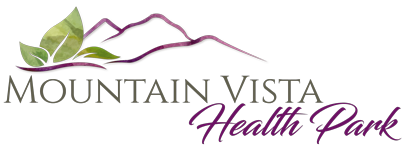Choosing the right care for an aging loved one is a significant decision. With so many options available, it’s easy to feel overwhelmed or uncertain about what’s best. A common source of confusion is the distinction between assisted living and nursing homes. While these two terms are often used interchangeably, they cater to different needs and provide distinct care services. We are here to help you determine assisted living vs nursing home.
If you’re exploring long-term care options for seniors in North Carolina, Mountain Vista Health Park is here to help you make an informed, confident decision. This blog will break down the differences between assisted living and nursing homes, guiding you toward the best choice for you or your loved one. Contact us today at 336-859-2181 to schedule a visit.
What is Assisted Living?
Assisted living is designed to support individuals who are mostly independent but need occasional help with daily tasks. These facilities provide a homelike environment where seniors can maintain their independence while receiving the care they need.
Key Services in Assisted Living
Assisted living facilities typically offer services such as:
- Assistance with activities of daily living (ADLs) like bathing, dressing, and medication reminders.
- Nutritious meals prepared and served daily.
- Housekeeping and laundry services.
- A calendar of engaging activities and social events to foster community.
- Access to fitness or wellness programs tailored to seniors’ needs.
Residents in assisted living often flourish in a setting that balances independence with structured support. This makes it perfect for those who may no longer feel comfortable living alone but do not require constant medical care.
What is a Nursing Home?
Nursing homes, by contrast, provide 24/7 skilled nursing care for individuals with chronic health conditions or significant physical limitations. These facilities meet the needs of seniors who require a higher level of medical attention that goes beyond what assisted living can provide.
Services Provided in a Nursing Home
Some of the primary services include:
- Around-the-clock care from licensed medical professionals such as RNs and CNAs.
- Management of chronic illnesses or post-surgery recovery care.
- Assistance with all aspects of daily living for residents with limited mobility.
- Specialized therapies, such as physical, occupational, or speech therapy.
- Access to medical equipment and treatments, like IV care or wound management.
A nursing home provides a more clinical setting compared to assisted living and guarantees medical support for complex needs.
Key Differences Between Assisted Living and Nursing Homes
Understanding the distinctions between assisted living and nursing homes is crucial when evaluating options.
Level of Care
- Assisted Living: Focuses on non-medical support and activities for mostly independent residents.
- Nursing Home: Offers advanced medical care and daily supervision for residents with significant health needs.
Staff Qualifications
- Assisted living staff includes trained caregivers but may not have a robust medical background.
- Nursing homes employ licensed nurses and doctors to provide specialized treatments.
Living Environment
- Assisted Living: Designed to feel like home with apartments, common areas, and community spaces.
- Nursing Home: More clinical in design, resembling a hospital or medical facility.
Costs and Insurance Coverage
- Assisted living is often more affordable and may only be partially covered by long-term care insurance or Medicaid.
- Nursing homes cost more due to the higher level of care provided, though they are more likely to have insurance or Medicaid options that offset costs.
Emotional and Social Impact
Assisted living promotes community and prevents isolation with a focus on social activities. Nursing homes, while offering care, may provide less social engagement depending on the resident’s health.
How to Choose Between Assisted Living and a Nursing Home
Making this decision requires thoughtful consideration of the individual’s health, lifestyle, and personal preferences. Here are a few ways to narrow it down:
- Ask the Right Questions:
- Does my loved one need help with medical needs or just daily tasks?
- What types of social engagement or activities do they value?
- Look for Signs Assisted Living is a Better Fit:
- They are still mobile and can handle most personal tasks independently.
- They’d enjoy being part of a community with activities and amenities.
- Know When a Nursing Home is Necessary:
- They have chronic health issues requiring constant care.
- They need medical interventions or rehabilitative therapies.
- Always Visit and Evaluate Facilities:
Tour several facilities to get a feel for the environment, services, and staff. Trust your instincts when deciding if it feels right for your family.
Why Choose Mountain Vista Health Park for Assisted Living
At Mountain Vista Health Park, we understand the unique needs of seniors and their families. Here’s why we stand out as a top choice for assisted living care:
- Personalized Care Plans: Our team customizes care to each individual, empowering them to maintain their independence.
- 24/7 Support: Residents receive around-the-clock assistance while enjoying the comfort of a non-clinical, homelike setting.
- Engaging Activities: From wellness programs to social events, our programs keep residents active and engaged.
- Smooth Transitions: If care needs increase over time, we offer a seamless transition to higher levels of care within the same campus.
- Community Testimonials: Families constantly praise our compassionate team and the thriving community we foster.
Empower Your Family with Knowledge of Assisted Living vs Nursing Home
Deciding between assisted living and a nursing home is not easy, but understanding your options can bring clarity and peace. Take the time to evaluate what’s right for your loved one.
If you’re still unsure, we’d love to guide you further. Call us at 336-859-2181 to schedule a visit and see how Mountain Vista Health Park can meet your family’s needs. Together, we can provide the care, compassion, and community your loved one deserves.
